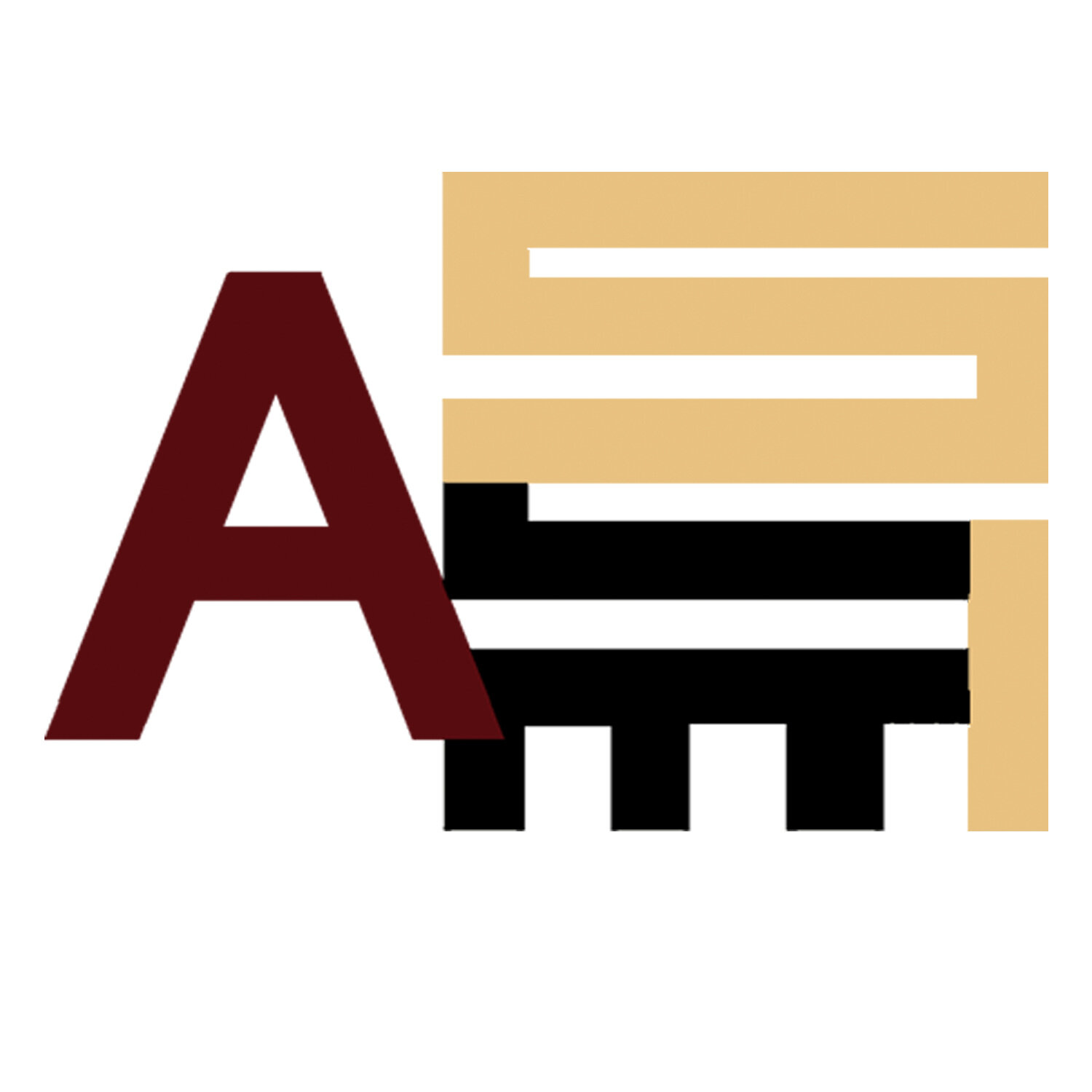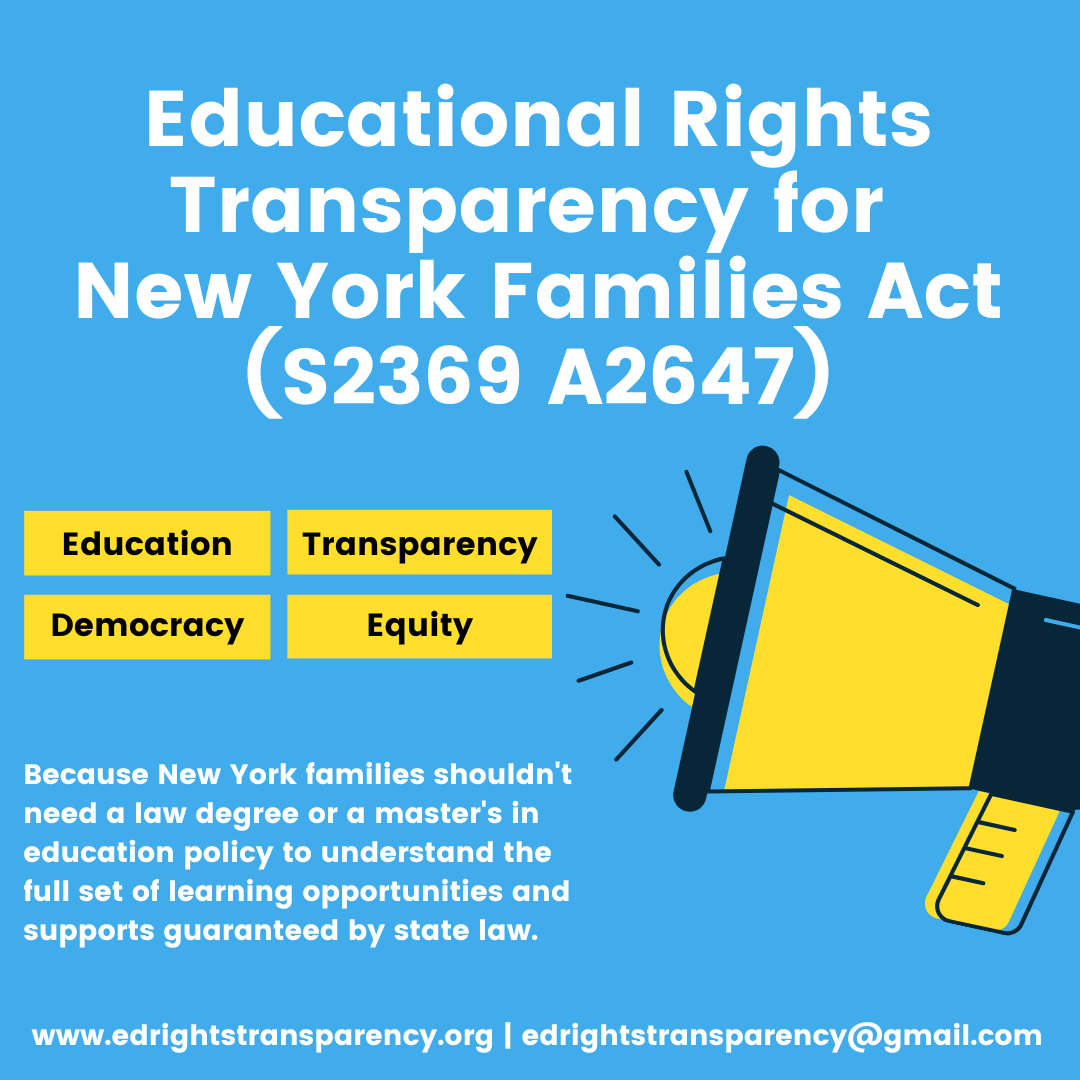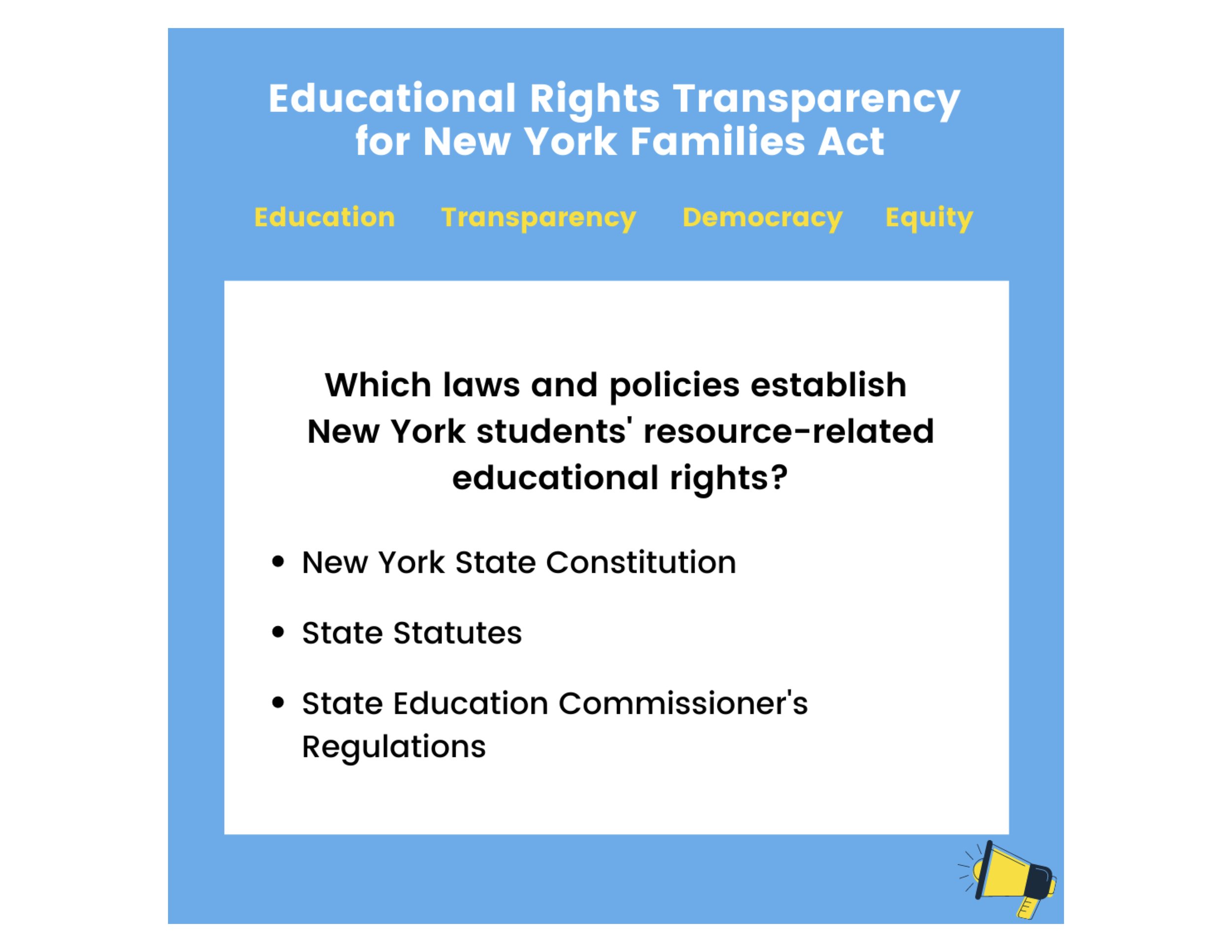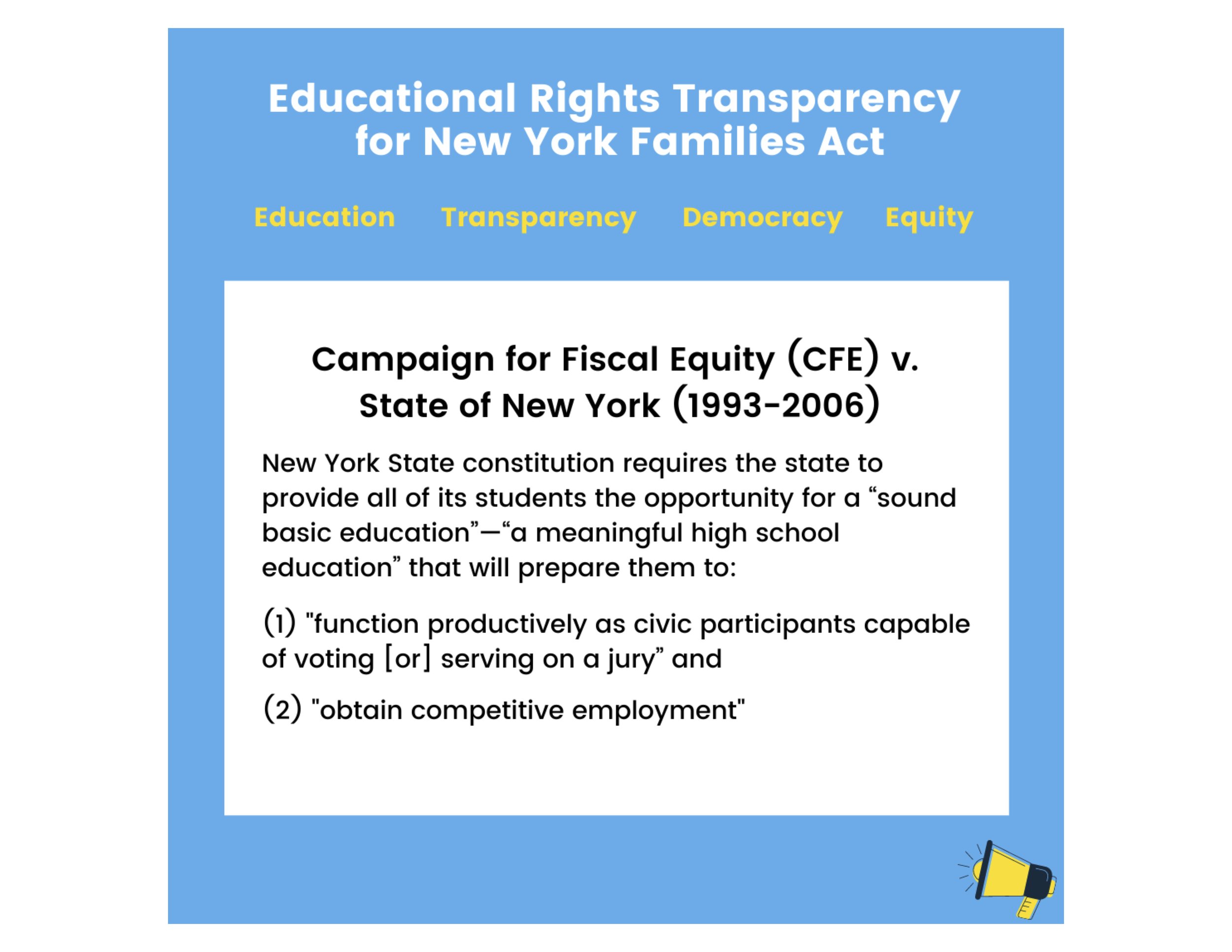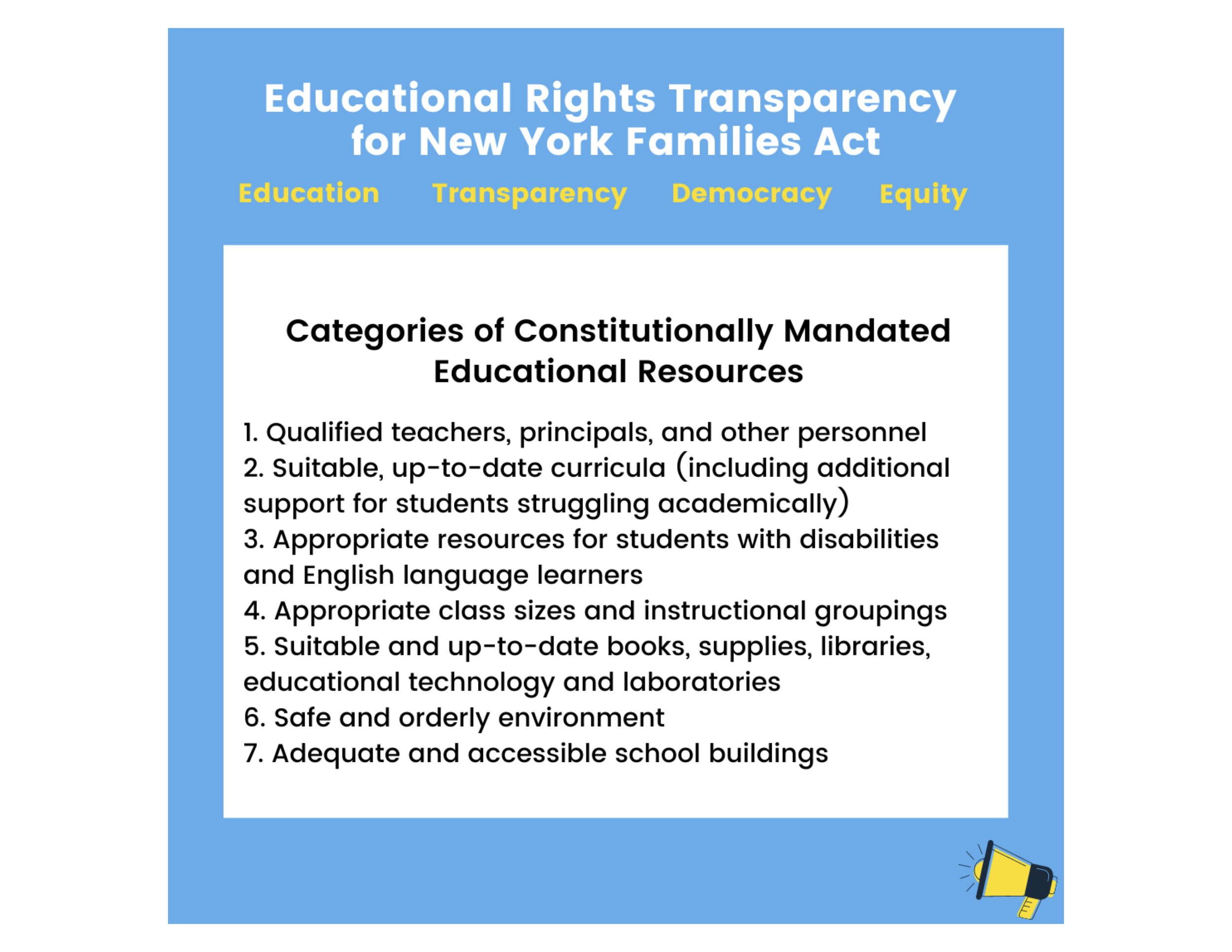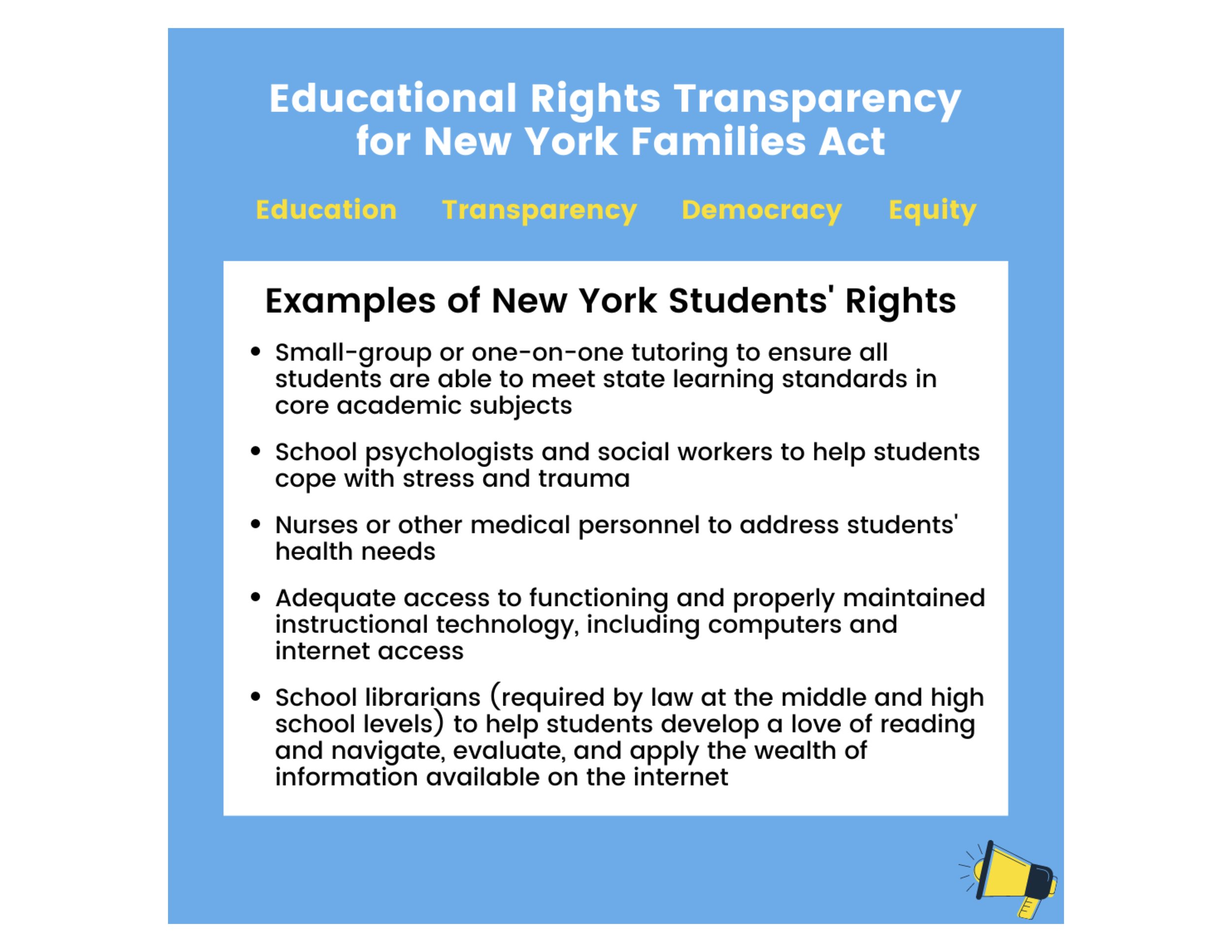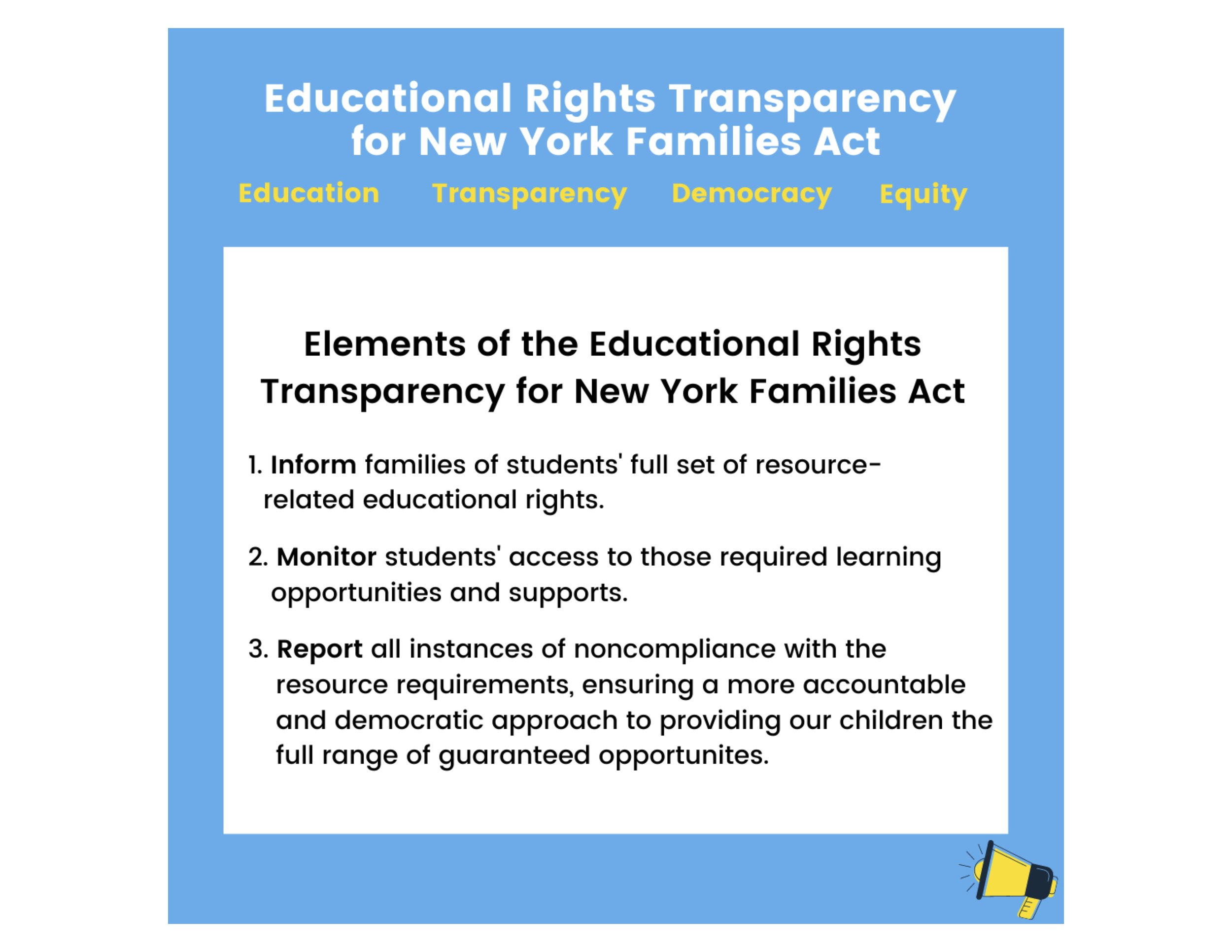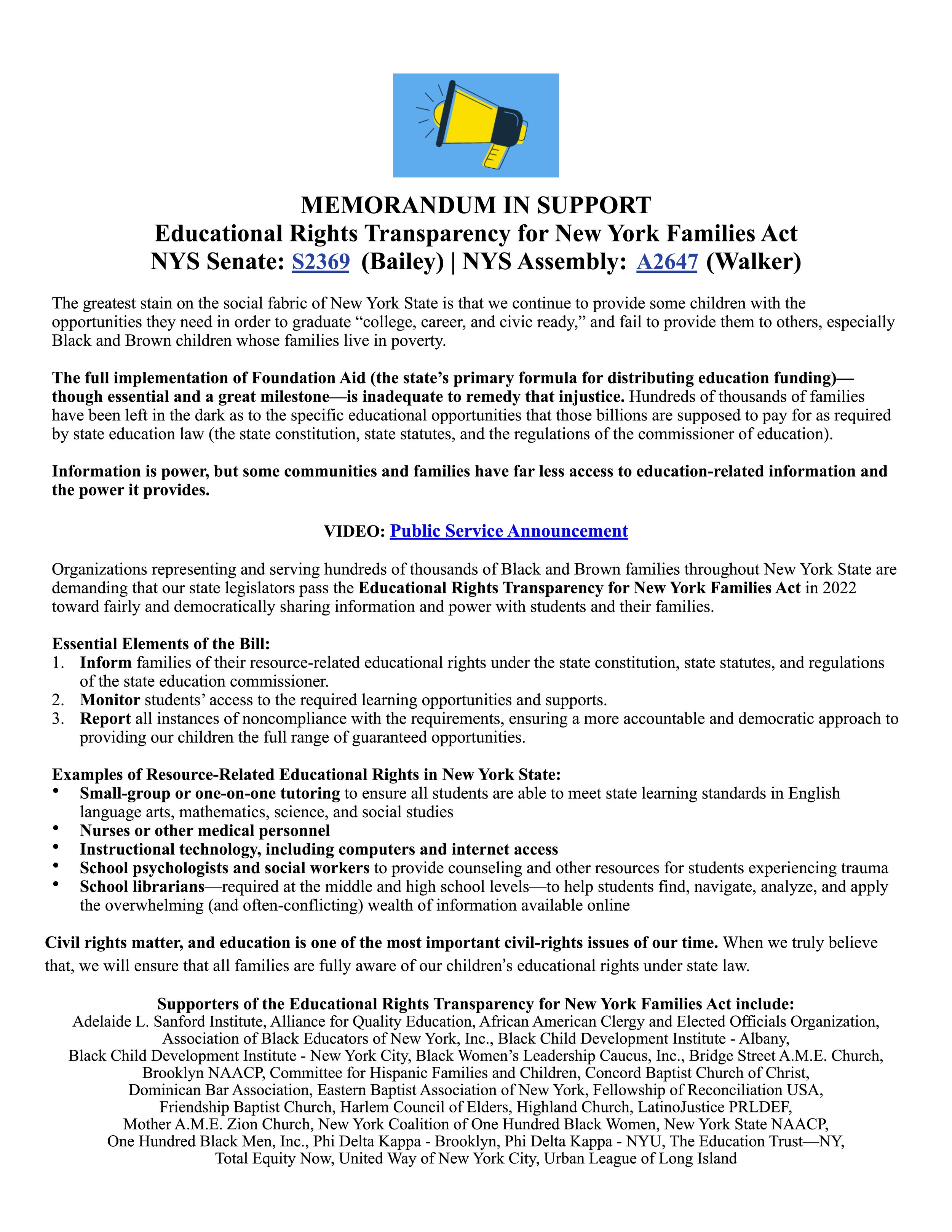The Educational Rights Transparency for New York Families Act
1. One of the goals of the Adelaide Sanford Institute, which sponsors The Parent Leadership Institute, is to develop and support parent advocacy initiatives that will enable families to assist their children in achieving school success. We are committed to empowering parents with information and resources that will broaden their children’s knowledge base and experiences. As a result, since 2011, we have conducted monthly meetings with parents of Kindergarteners through Grade
2. We focus on curriculum and assessment, parenting skills, social and emotional wellness, the college admissions process, and other topics that parents request. In addition, they receive a variety of take-home materials covering all curriculum areas. Last year, because of the disrupted learning caused by the pandemic, we also provided free one-to-one tutoring for students and virtual workshops conducted by experts in hybrid learning.
3. While the parents were attending our meetings and utilizing the strategies, tools, and resources that the Institute provided, many of their children were in low-performing schools with unresponsive staff who did not address the issues parents raised, such as inadequate materials, staff turnover, and a lack of timely information about their children’s progress.
4. Since we know our children are brilliant and creative, we must examine this burning question with a sense of urgency: Do our children have access to quality learning environments where they can thrive, soar academically, reach their God-given potential, and blossom into self-sufficient adults? This is a moral question that deserves serious scrutiny and well-researched answers. Students have a right to attend effective schools with high-quality resources and services.
5. Understanding that KNOWLEDGE IS POWER, we embarked on a course of study that would inform our parents about students’ educational rights guaranteed by state law and regulations. As a result, they could hold schools accountable for what they were charged to provide. They would learn how to interview school staff on resource-related topics. Does this middle or high school have a licensed librarian? Is there a lab assistant assigned to the science lab? What if students are struggling academically? Are the supplemental services that are listed in the rights document available? We were not promoting a “GOTCHA MENTALITY”; instead, we were advocating a partnership in schools where all stakeholders are engaged in a transparent, student-centered process that focuses on ensuring that all children-not just the ones living in favored communities, but all children—have access to a quality education guaranteed by law.
6. To effect change, in 2015, Joe Rogers, then a senior researcher at Teachers College, conducted a yearlong workshop series on students’ educational rights. In addition, we had school principals attend our sessions to engage parents in discussions about resource-related rights implementation in their schools. The experience was transformational! The parents were shocked that schools had never advised them of these rights.
7. The parents’ immediate response after learning about the rights was: ALL PARENTS SHOULD BE INFORMED! THEY WOULD ASSUME THE RESPONSIBILITY TO SHARE THE INFORMATION WITH PARENTS THROUGHOUT THE CITY!
8. The next step was to form the Parent Ambassadors unit. This group of Institute parents volunteered countless evening hours, attending meetings of community educational councils, PTAs, community boards, and civic organizations to inform other parents about the rights. The parent groups addressed were made aware of the guaranteed opportunities their children weren’t receiving. The Parent Ambassadors expanded their outreach citywide.
9. The next step was to develop a resolution asking the NYC DOE to disseminate the rights information annually to all parents. Half of all Community Education Councils passed the resolution unanimously! While they supported the resolution, a lack of a quorum prevented some of the other CECs from taking a formal vote. Other citywide councils endorsing the resolution included: Council for High Schools, District 75, English Language Learners, and the Chancellor’s Parent Advisory Council.
10. In May 2017, Chancellor Farina agreed to share the rights information with all NYC families. Next, in 2019, Chancellor Carranza decided to publish the information, making it part of the NYC DOE’s “equity and excellence” agenda. However, the rights information was never distributed to parents.
11. The parents began a campaign to have our state legislators pass the Educational Rights Transparency for New York Families Act developed by Joe Rogers with extensive input from our parent bodies. Senator Jamal Bailey and Assembly Member Latrice Walker were sponsors. To gain support for the bill, joining with other educational, social justice, fraternal, and faith-based groups, The Adelaide L. Sanford Institute co-led the formation of the Educational Rights Transparency Coalition so families could obtain access to resource-related educational rights information mandated by law for the very first time.
12. With legislative action to share information power with families, New York City schools and districts will be mandated to inform families each year of students’ legally guaranteed educational rights; conduct and make public the findings of the annual audit of resource-related compliance and non-compliance issues; and develop action plans to address the disparities. The monitoring and reporting process will be transparent and inclusive so parents will be aware of the non-compliance issues. Districts will seek the state’s assistance, if necessary, to eliminate the causes of the resource-related violations.
13. In the meantime, the ERT Coalition is forging ahead, developing rights material for timely distribution to families and to serve as models of the information we believe the state should provide for dissemination by local school districts and schools.
